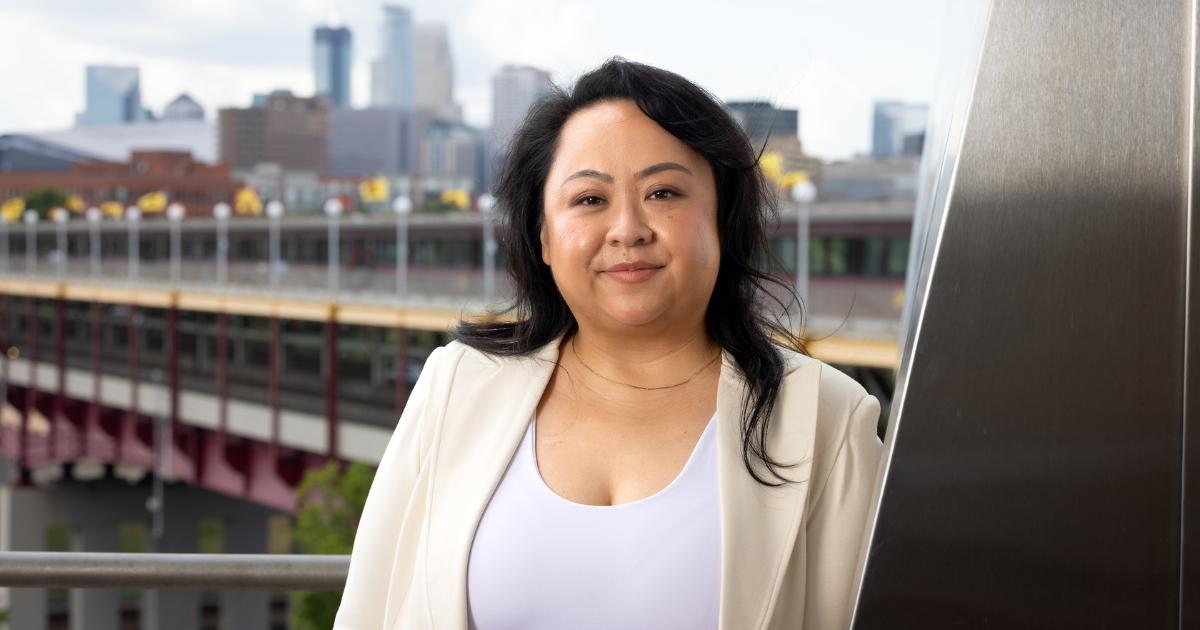Commit
Using “commit” emphasizes a pledge to prioritize antiracist efforts in making SPH a more welcome, equitable, and just organization.
What do you see as your role in antiracism?
“As SPH’s Associate Chief Advancement Officer, it is my job to create strategies to engage our alumni community around antiracism, diversity, equity, and inclusion. Their expertise and understanding can contribute towards building an antiracist institution centered around DEI. My commitment includes continuously engaging alumni in conversations ensuring that DEI is at the forefront of all of our programs.”
How are you committing on a daily basis (professionally and/or personally) to antiracism?
“Professionally, I am a part of the SPH advancement team, where we are directly addressing racism and promoting the values of diversity, equity, and inclusion in our work. As a leader on this team, I am committed to holding us accountable to these values and ensuring that we are improving our processes. It is important to challenge complacency by reflecting on our work, like considering who our programs are serving, being intentional at building community, and listening to our alumni. And we try to address these thoughts with honesty, transparency, and data.
 I also believe that to do this work professionally, an individual must have a personal commitment to antiracism. At my core, I love people, and I believe in working to provide equitable and just outcomes. I will always champion DEI in my work and challenge racism in all of its forms because that is who I am.”
I also believe that to do this work professionally, an individual must have a personal commitment to antiracism. At my core, I love people, and I believe in working to provide equitable and just outcomes. I will always champion DEI in my work and challenge racism in all of its forms because that is who I am.”
How do you stay committed to antiracism?
“I stay committed to antiracism by surrounding myself with amazing people from diverse backgrounds — individuals that inspire me, teach me, and continue to motivate me. Antiracism and DEI work is often emotionally laborious, so it is important to build community and a network of people that can support each other. A commitment to antiracism is a commitment to the people around you.”
Challenge
We are “challenged” to accept that racism exists and to “challenge” it when we see it.
What challenges do you face in prioritizing antiracist efforts?
“The biggest challenge I face in prioritizing antiracist efforts is practicing patience. I want to see changes right away and oftentimes I have to remind myself that this process takes time. One thing that grounds me is taking time to appreciate the path that we are on and celebrate wins as they happen, big and small. I’m very proud of my team and all of the work that my colleagues in advancement are doing to help SPH become an antiracist institution! But I know there is still much more to be done.”
How are you challenging the systems around you?
“I am challenging the systems around me by questioning how things are done and tearing down barriers that are holding us back. I try to stay curious and open, always prioritizing DEI when we are developing strategies. An example of this work is SPH’s Mentor Program. Every year, we use data to understand who our mentor program is serving, who it is not, and why. These types of questions help lead us to tangible actions to make mentorship as accessible and equitable as possible.
Additionally, I have been a part of the University of Minnesota Foundation’s Broadening the Donor community, where we seek to engage with diverse communities, provide professional development around DEI, and build understanding on alumni identity data to better serve our school. Being part of this group has given me the opportunity to learn, ask questions, challenge assumptions, and advocate for DEI and antiracism on a University level.”
Change
We have to be willing to “change” and shift our beliefs, attitudes, and actions toward equity and justice.
 What impact do you think the school can have on racism?
What impact do you think the school can have on racism?
“I know the School of Public Health can have an incredible impact on racism because I have the privilege of working and connecting with SPH alumni everyday. Alumni reflect the teaching outcomes of an institution, and with over a decade in higher education, I have never been more proud to work with an alumni body as much as I have in SPH. Our alumni are working with marginalized communities, researching methods to combat health disparities, and are passionate about changing the world. These alumni believe in SPH, and they inspire me to believe in us, too.”
“Building Equity, Driving Justice: Commit | Challenge | Change” — ties all communications related to the SPH Strategic Plan for Antiracism together under one look and feel. The theme showcases our guiding principles, and it motivates and inspires. "Agents for Change" profiles support this theme and all interview questions are related to the action words, Commit, Challenge, Change, as described above.
Submit an idea for this profile series — either your own story, or one that inspires you from another SPH individual or group.

